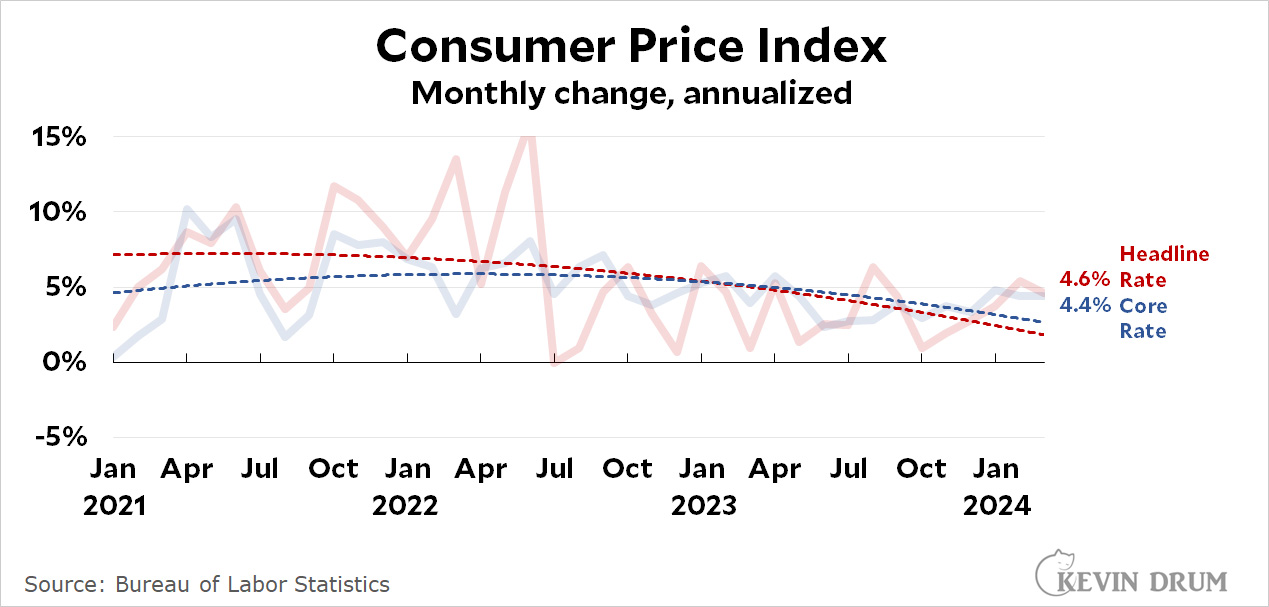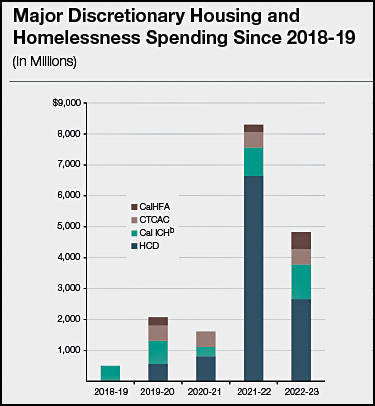A few days ago Damon Linker wrote a piece for the New York Times claiming that America is broken, and this is why people are so unhappy right now.
Linker makes his case by cherry picking a laundry list of bad things that have happened recently, and he's certainly right about some of them. Iraq was a disaster and the 2008 banking crisis exposed some deep problems in our financial system. On the other hand, I don't think he's right that our response to COVID-19 was shambolic or that our withdrawal from Afghanistan was humiliating. And he's flat wrong about homelessness: it's declined over the past decade.
And I can make my own list. Wages are up, unemployment is down, inflation has subsided, GDP is the best in the world, crime is declining, teen pregnancy is down, the uninsured population is down, we created a COVID vaccine from scratch in only ten months, vacation travel is skyrocketing, and everyone loves playing pickleball.
Nor is Linker right to say that we've failed to even respond to our failures. We passed a huge financial reform bill after the financial crisis. We've withdrawn from Iraq and been cautious about committing troops to other wars ever since. The Fed responded to inflation and Congress kept people solvent during the pandemic. Obamacare has addressed the health care crisis. A thousand people have been tried and convicted of the January 6 insurrection and Donald Trump will soon be one of them.
But put that all aside. We can agree to disagree. Because none of this matters unless people are, in fact, deeply unhappy these days. Our old friend YouGov asks about this every week and tells us this:

 Over the past four years, reported satisfaction has gone up, happiness has gone up, and sadness has gone down. In addition, boredom, stress, frustration, and loneliness are also down.
Over the past four years, reported satisfaction has gone up, happiness has gone up, and sadness has gone down. In addition, boredom, stress, frustration, and loneliness are also down.
Every four years someone tells us that this time people are really fed up with Washington. Maybe so. It's certainly true that people are increasingly unhappy with politics. It's also true that both the far right and far left are united in a sense of catastrophism. But there's not really a lot of evidence that this has changed voting patterns in the middle, and there's definitely no evidence that people overall are less happy or less satisfied with their lives than they've ever been. What does it take to pound that message home?






